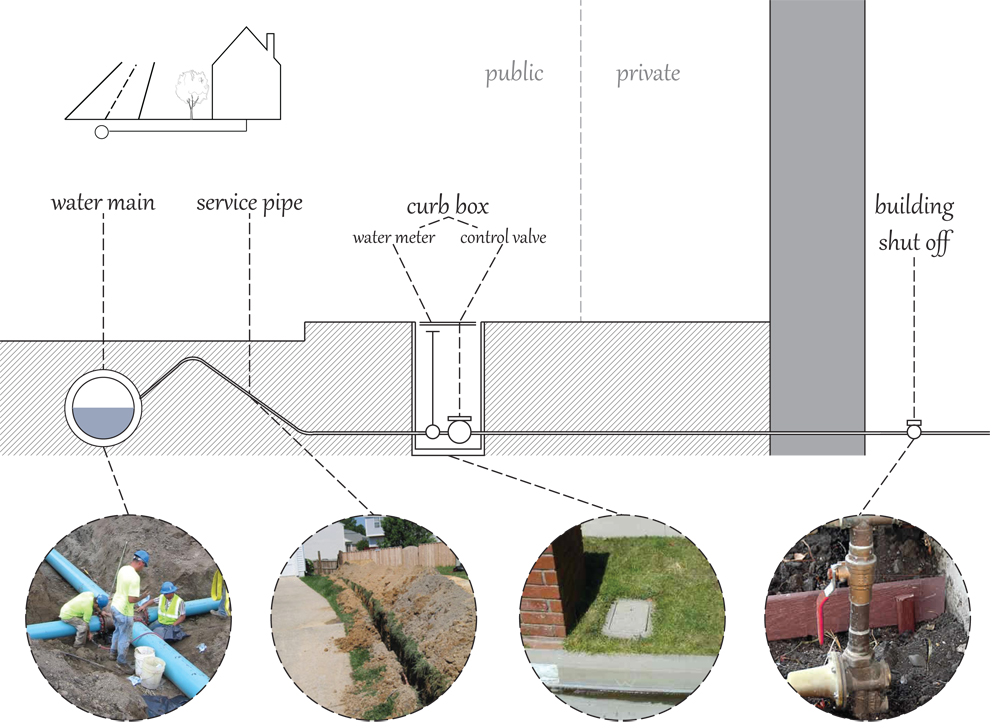Water Supply
Emily Oster
In beginning this Know How series of the blog it might have made the most sense to start with the shell (the exterior components) and work inwards to the core. However, as I mentioned yesterday we have been experiencing some rather pressing plumbing issues and anyone who has had these sorts of problems knows that there is a rather large urgency to resolve them - much more than say a drafty window or door.
In starting my research, I realized it made sense to just start with water as after all this is what your plumbing supplies, transports, holds and removes. Water is supplied to homes in two general ways - public or private. Most people have a public supply or sometimes called city water. With this system, a central water main supplies a home via a service pipe. The water main is underground and on public property. With each individual service pipe, there are several key components. The first is a corporation stop which is the valve that controls the flow of water from the main to the service pipe. The second is the curb box which holds the water meter that measures and records the quantity of water that passes through a given service pipe as well as the control valve for shutting off the public supply. Lastly, each home has its own building shutoff valve. These are just the general components so keep in mind your system might contain additional valves or be placed in slightly different locations.
diagram recreated and amended from Building Construction Illustrated by Francis D.K. Ching
The second type of water delivery is private. A private system is usually used when access to the public system is unavailable. The primary means of obtaining water in a private system is through drilled or bored wells. Wells should be located at least 100' from building sewers, septic tanks and sewage disposal fields. They also should remain (somewhat) easily accessible for maintenance and repair. It is important that if you are using well water that a sample be checked by a local health official for bacteria and chemical content before water is used.
*Information gathered primarily from Building Construction Illustrated and What's a Homeowner to do?
